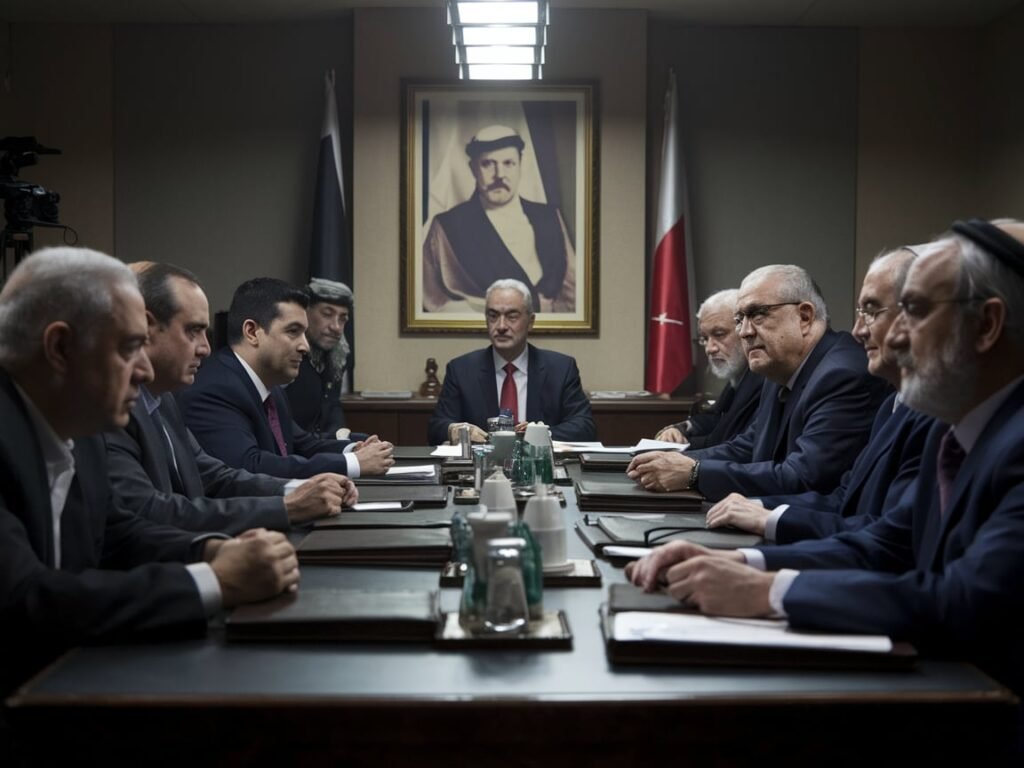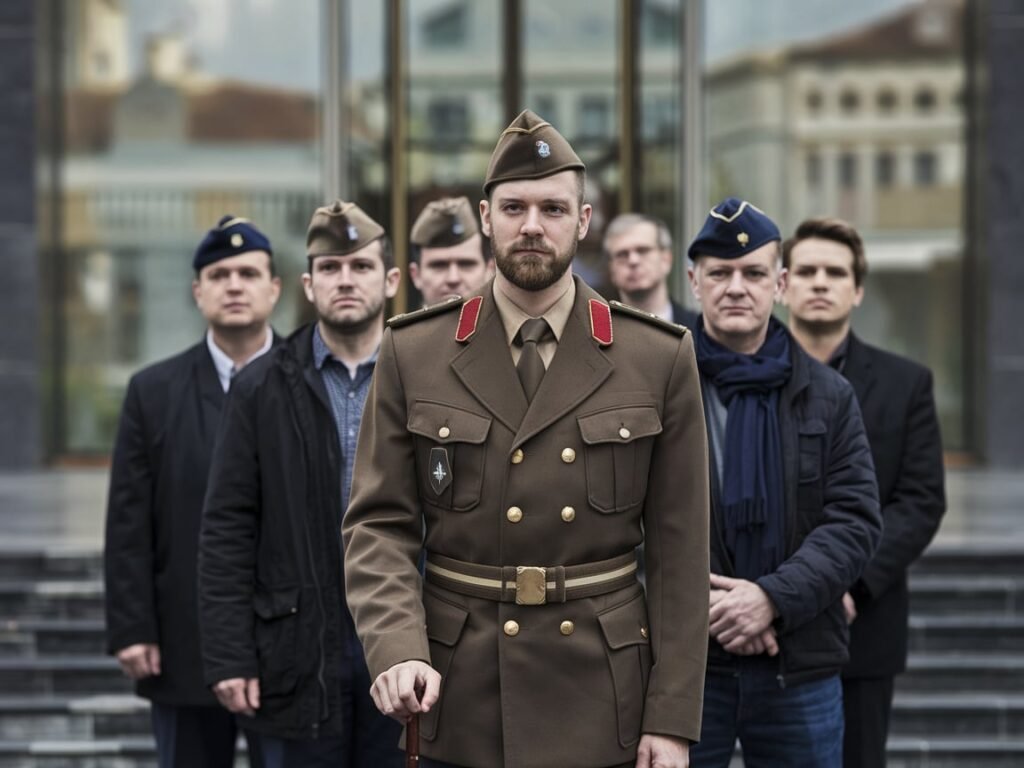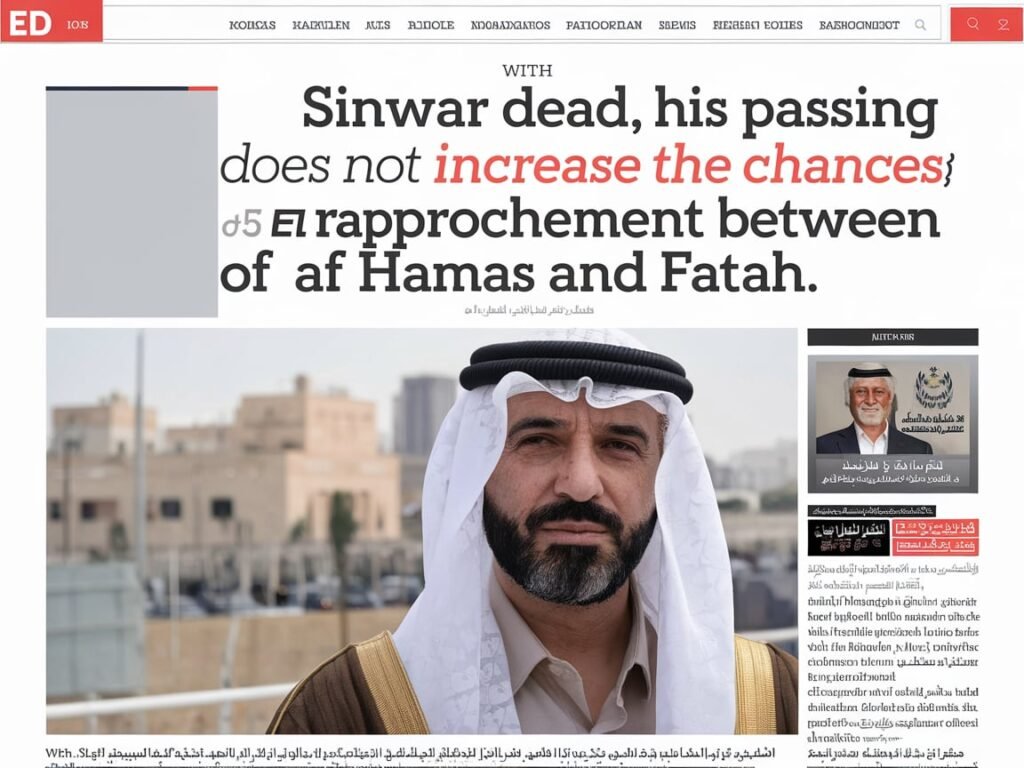
Within a few short days of Israel’s targeted killing of Hamas leader Yahya Sinwar on October 17, a view across the West emerged: that Israel’s act could be an opportunity for a Gaza truce and the freeing of Israeli prisoners.
Now that Israel seems to have scored one of its military objectives, US President Joe Biden easily goaded Israeli Prime Minister Benjamin Netanyahu into taking this opportunity and entering into negotiations.
But that “moment” is now over. Since Sinwar’s death, Israel has ratcheted up its military attack on Gaza, and UN Peace Process Coordinator Tor Wennesland stated that “nowhere is safe in Gaza.” Netanyahu has made it sadistically clear that he is determined to debilitate Hamas even further, create a new “balance of power,” and erect a buffer zone, no matter the cost in terms of Israeli hostages or Palestinian casualties.
But the assassination of Sinwar has implications that go beyond the clear-cut, either-or question posed by whether or not it would usher in a ceasefire.
The ability of Hamas to fight
Everyone today has an opinion about how Sinwar’s death would have affected the capacity of Hamas to resist and to respond to the military operation of Israel. His death is such a blow, both psychologically and operationally and symbolically that Hamas is losing credibility and undermining its capability to respond.
But, it will recover, revive, and retaliate; Palestinians in Gaza and elsewhere won’t have been surprised by the death of Sinwar. Assassinations of Hamas officials are nothing new to the organization. It has been “decapitated” several times since its founding in 1987, yet it has remained intent on its goal to “liberate Palestine.“
Many young Palestinians would feel that Sinwar was murdered as a hero of the cause for the Palestinian people based on Hamas descriptions of how he fought to the last as he died in his fatigues and with his head covered in a keffiyeh. This will incite many to join and fortify Hamas’s ranks.
His credibility would not be damaged by the IDF unveiling drone footage of Sinwar’s last moments.
Still, it will ring as a battle cry for alienated and demoralized young Palestinians who feel frustrated by Israel’s pounding of civilians in Gaza and disappointed by Fatah’s inability to stem Israeli brutality and settlement expansion in the West Bank.
Making amends
Since they are based in Qatar, any future Hamas leaders like Khaled al Meshaal and Khalil al-Hayya will have little influence over the development of the situation in Gaza.

By the “day after,” however, some believe Sinwar’s killing may actually clear the way for Hamas-Fatah reconciliation if a more “moderate” leader replaces him. This would set the stage for a patchwork political solution.
However, it is unrealistic to assume that a degraded and “leaderless” Hamas will be vulnerable to pressure from other countries to make peace with Fatah.
Qatar is home to Khaled al Meshaal and Khalil al-Hayya, two potential future Hamas leaders.
They might more easily be cowed by external pressure to a political compromise with Fatah, but they will have no sway in the direction of things happening in Gaza. Consider, for example, the events of October 7, 2023, the Sinwar-orchestrated attacks carried out without support from the leadership in Doha.
Hamas has been on the ground in Gaza for a long time and has decentralized very significantly since October 7. Hamas cadres are now operating with a great deal of operational autonomy that is more characteristic of an insurgency.
In other words, since the start of this crisis, the gap between Hamas in Gaza and its political leadership in Qatar has only widened.
Global initiatives
That will jeopardize international efforts by Saudi Arabia, China, Qatar, Egypt, and Russia, among other states, to promote reconciliation. But reconciliation negotiations between Beijing and Moscow have been held in February and April of this year without any breakthrough between the two sides. Talks have also taken place in Saudi Arabia.
The three Arab countries-all of which have not made an official statement about Sinwar’s killing-will likely take this opportunity to make overtures to Hamas’ political wing, promising to fund, diplomatically support, and politically bolster it.
The armed wing of Hamas has no intention of surrendering and reconciling with Fatah.

Saudi Arabia and Egypt will have very little, if any, influence in the succession process, but Qatar does have some degree of leverage over the organization because of its long-term connections with Hamas’ political wing. By pledging to make greater efforts at obtaining a ceasefire, the distribution of aid, and the attainment of a political settlement, they might be able to fortify the position of those located in Doha.
Reconciliation between Hamas and Fatah, with the latter now being the dominant partner, is necessary for Egypt and Saudi Arabia to achieve any significant political settlement that results in Palestinian self-governance in Gaza once more.
That is not going to happen. Actually, the war-weary armed wing of Hamas will not relinquish and reconcile with Fatah. Nor does it want a leader imposed from the outside.
Sinwar’s killing will thus not bring about peace between the two Palestinian factions more likely nor be a stepping stone for a political resolution of this problem.
In the abstract, everything considered, Sinwar was among several strong and important Hamas leaders assassinated by Israel. His death will not change the overall curve of the war between Israel and the Palestinians or between Israel and Hamas.
Eventually, as has happened in the past, a new, strong leader will emerge. Sinwar’s death will not bring political unity or even a truce among Palestinians. That would require both global and regional players to now use political capital to force the parties into a settlement. That feels like a long way off.


